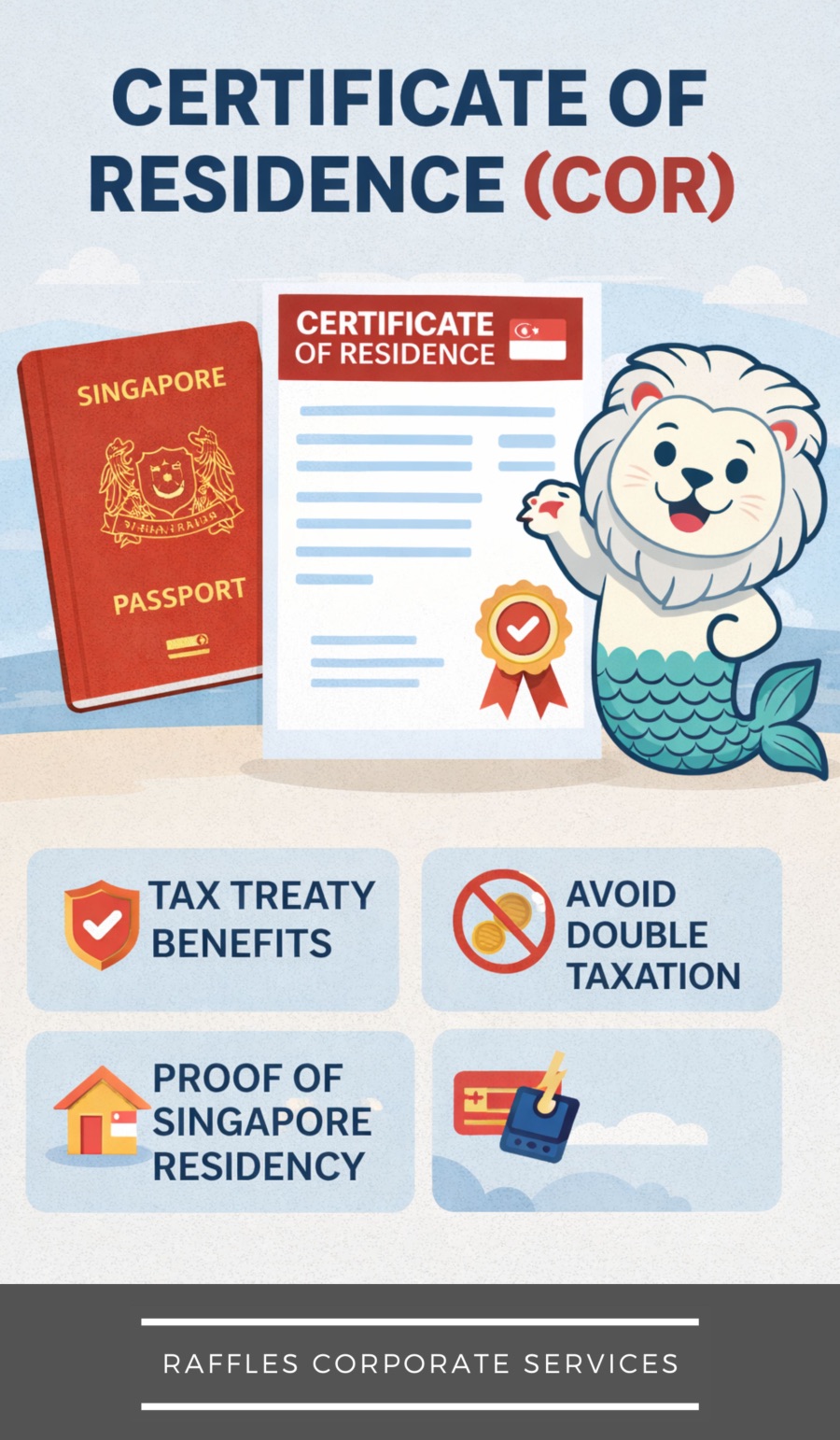A Certificate of Residence (COR) is a document issued by the tax authorities of a particular country to certify that a person or entity is a tax resident of that country for a specific period. The purpose of a COR is primarily to help prevent double taxation on income earned by individuals or entities in countries with which the issuing country has a Double Taxation Agreement (DTA).
Key points about Certificate of Residence (COR):
- Tax Residency: A COR confirms that the recipient is considered a tax resident of the issuing country for the relevant period. Tax residency is determined based on various factors such as the individual’s physical presence, the location of their permanent home, or the place where the business is managed and controlled by entities.
- Double Taxation Agreements (DTAs): Many countries have entered into DTAs with each other to avoid or mitigate double taxation on income earned across borders. These agreements typically include provisions for determining tax residency and allocating taxing rights between the countries involved. A COR may be required to claim benefits under a DTA, such as reduced withholding tax rates on certain types of income.
- Purpose: A COR is often requested by foreign tax authorities, financial institutions, or other entities as proof of tax residency for tax purposes. It helps establish eligibility for tax treaty benefits and may be required when receiving income from foreign sources, such as dividends, interest, royalties, or capital gains.
- Content: The content of a COR may vary depending on the requirements of the issuing country and the specific tax treaty provisions. Typically, it includes information such as the recipient’s name, address, taxpayer identification number, the period for which the certificate is valid, and any conditions or restrictions imposed by the tax authorities.
- Application Process: The process for obtaining a COR varies from country to country. In general, individuals or entities may need to apply to the tax authorities of the issuing country, providing relevant information and supporting documents to demonstrate their tax residency status.

